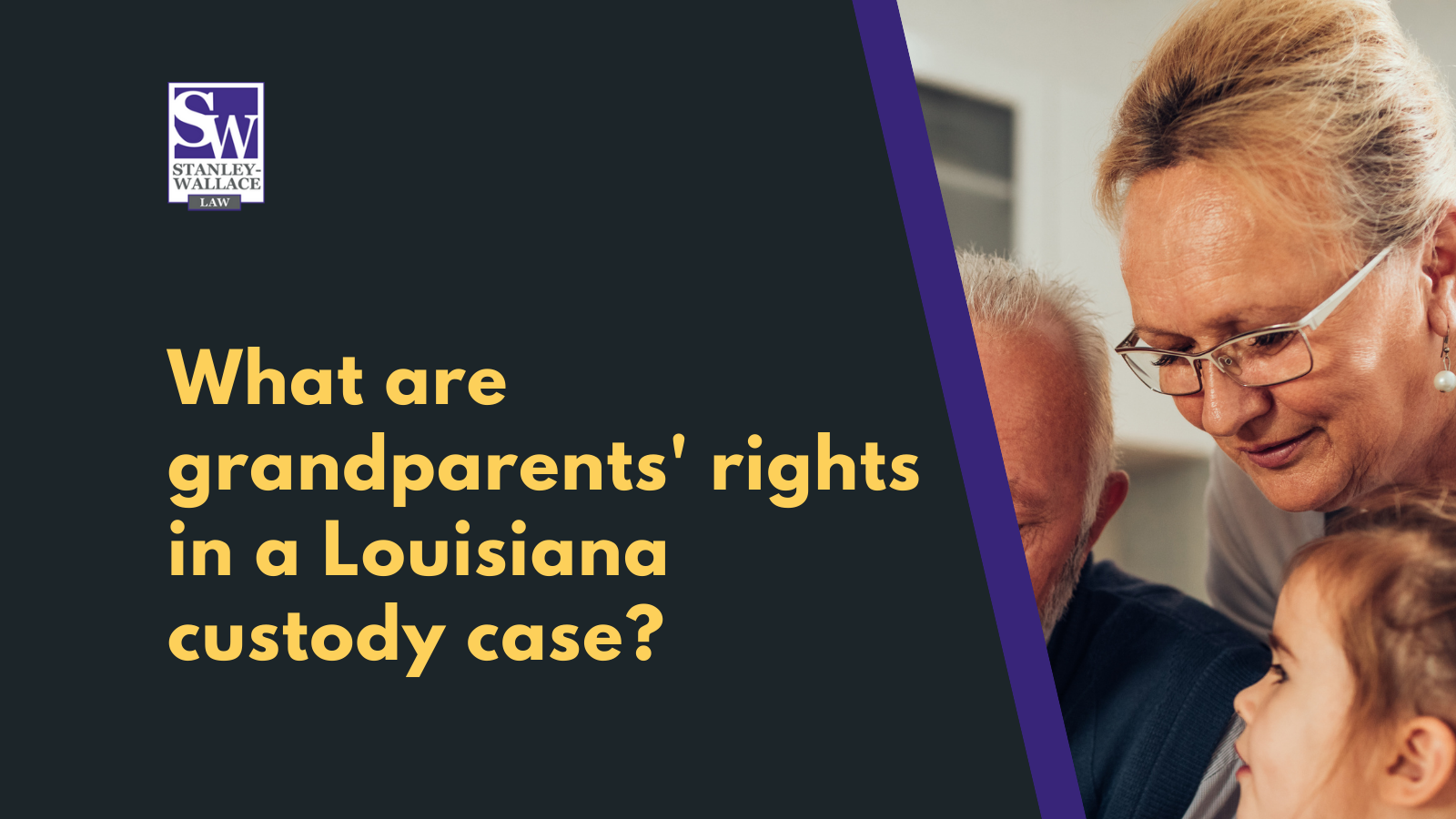Child custody battles can be contentious disputes, especially for the child or children in question. In most cases, the court is going to make a decision in the best interest of the child, defaulting to an agreement that allows both parents to raise their child.
However, in some cases, it may not be in the best interest of the child for either parent to have custody. So what rights do grandparents have in a child custody case?
In general, grandparents do not have the same guaranteed rights that parents do in a child custody case, unless granted them by the court. In extreme cases, a grandparent may be able to sue for visitation rights or even custody, but it will take clear and convincing evidence to prove to the court that the child’s parents are not fit to raise them.
From our team of family law attorneys at Stanley-Wallace Law, here’s a breakdown of what grandparents can do to make sure their grandchildren have the best outcome in a child custody case.
Visitation rights
The Louisiana law that determines who does and doesn’t have visitation rights is the Louisiana Civil Code Article 136. It states that parents who don’t have custody are entitled to visitation rights with their children, but, in certain circumstances, other relatives such as grandparents are entitled to visitation rights as well.
This usually means that grandparents have the right to ask for visitation with their grandchild if the grandchild’s parents are divorced, if they are separated for more than six months, or if one parent is dead.
There are a few other “extraordinary circumstances” that allow a grandparent, or other relatives, to request visitation rights as well. These include some of the following:
- one or both parents are imprisoned
- one or both parents are declared legally incompetent to raise the child
- one or both parents are struggling with substance abuse
Even if any of these situations apply to you, you will still need to prove to the court that granting you visitation rights with your grandchild is in their best interest.
First, you will need to prove that one of the above circumstances applies to your case. This may mean providing sufficient evidence to support the claim that the child at issue is being abused or neglected.
Then, you’ll need to provide evidence of your relationship with your grandchild and demonstrate that your spending time with them will be in their best interest.
Custody rights
It is much harder to gain custody of a grandchild than it is to gain visitation rights to a grandchild. According to Article 133, custody may only be granted to someone other than the child’s natural parents if granting custody to one or both parents “would result in substantial harm to the child.”
This puts the burden of proof pretty high on the part of the grandparent. You will have to prove, through clear and convincing evidence, that granting custody to your grandchild’s parents would cause them substantial harm.
Once this has been proven, the court will then consider a number of variables to determine whether to grant you custody over your grandchild. These variables can include the emotional relationship between everyone involved, your ability to provide for your grandchild, and the child’s preferences, if they are old enough to voice them.
Hire a family law attorney in Slidell today
While these kinds of legal battles can be stressful and unpleasant, they are important. At Stanley-Wallace Law, we understand that you want what’s best for the child, and we have the experience and knowledge of the law to make sure that the court honors that. Contact us today to schedule a consultation and discuss the next steps you can take to ensure the best outcome for the child and everyone involved.


